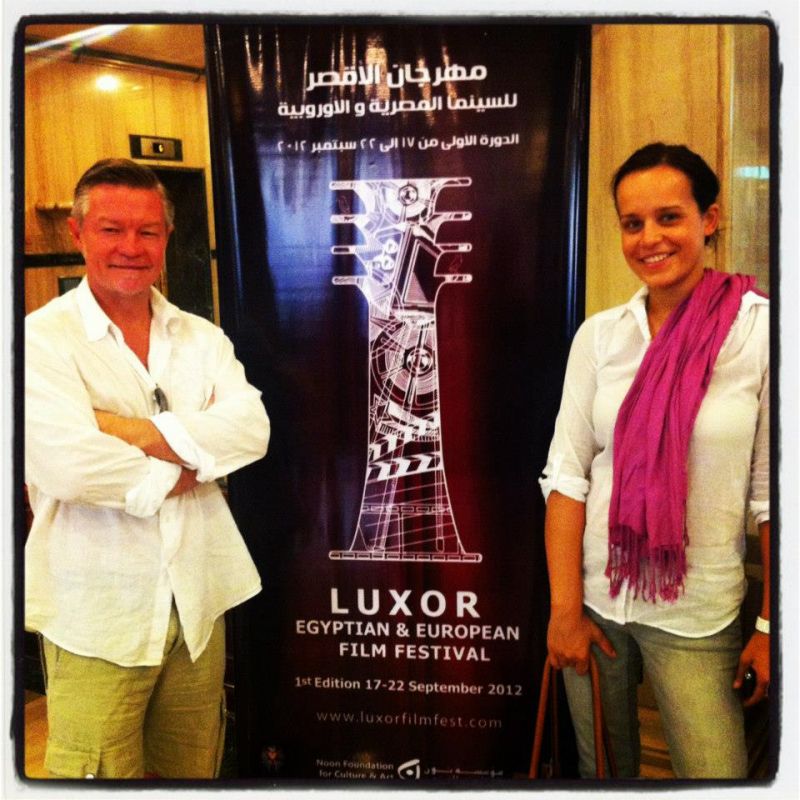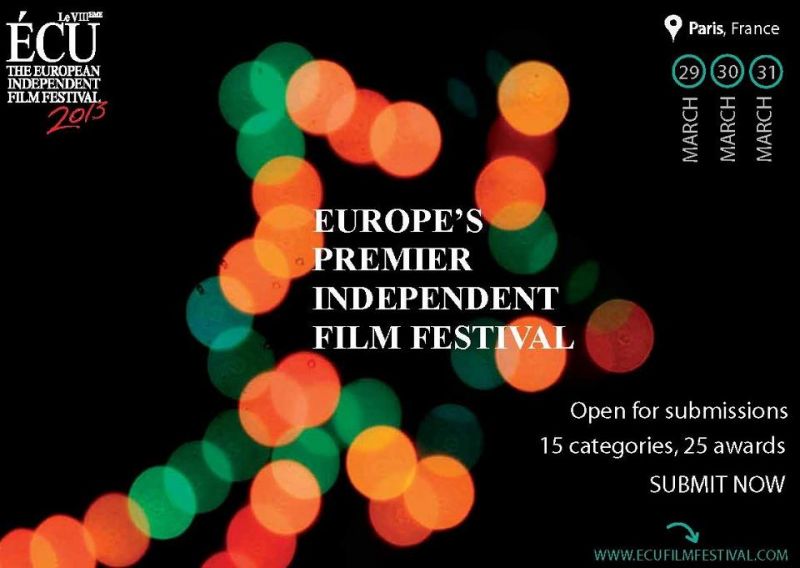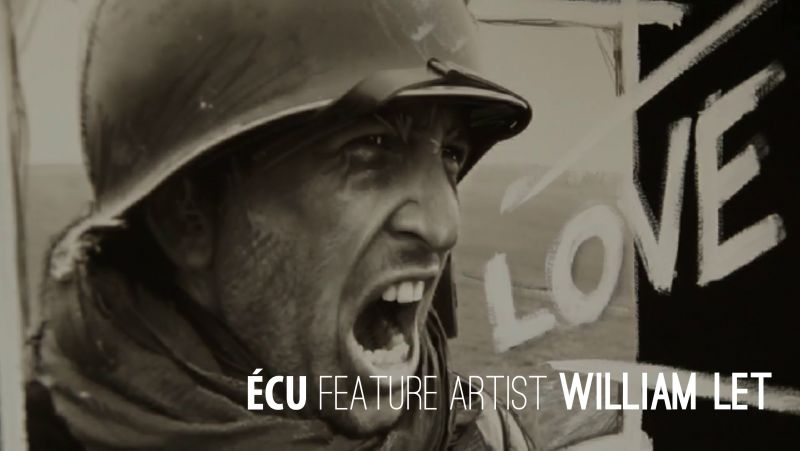|
|
||
|
Pro Tools
FILMFESTIVALS | 24/7 world wide coverageWelcome ! Enjoy the best of both worlds: Film & Festival News, exploring the best of the film festivals community. Launched in 1995, relentlessly connecting films to festivals, documenting and promoting festivals worldwide. Working on an upgrade soon. For collaboration, editorial contributions, or publicity, please send us an email here. User login |
Meet Indie Filmmaker: ALMARITSU
ALMARITSU, directed by Damien Montaron, is a recent submission to ÉCU 2010’s Experimental film category. By Sophie Nellis Q: Given that it’s the only word spoken in the film, what does “Almaritsu” mean? The word “Almaritsu” has no verbal definition. It’s a word which contains all words. Almaritsu is a cry, it’s a smile, it’s confidence, it’s a free breath. In fact, this word contains everything that the character is feeling at the time of the story. A long time ago, when the man was younger, when he built the boat, he was flying. But the more he helped to brighten up the lives of other people, the heavier the boat became. Over time, the boat got bogged down and the man forgot his childhood. When he screams “Almaritsu”, it is his childhood… I didn’t actually write the word. I asked the actor to cry out one word that contained all of his feelings, and I warned him that the word he screamed would be the title of the movie. On the day of the shoot he improvised, and there was a long, intense silence on the set after his scream. Q: Tell me a bit about your film. Where did your inspiration for the film come from? For this film, as for all my creative projects, I didn’t look for anything. I let the pictures come to me. It can take a long time sometimes, but if it’s necessary I wait. I collect lots of pictures of the world, and from other art works, I let the connections between them create a great imaginative web, and I shape it into a narrative. It’s strange for me to explain the process of creation, because it’s more than that…Almaritsu all began with a picture, as always. I was riding a bike in the countryside and I saw two dead trees on a hillside. A very little one and a big one. The story was written. And the picture is now in the film. Q: Does the film have an environmental message? In my opinion, no it doesn’t. But lots of different readings of the film are possible, and if you think the many bags thrown away in the movie are dustbin liners (or garbage) then, yes, you could find an environmental message. In fact, it all depends on what the audience thinks about the bags… Q: Why did you choose to make this film without dialogue? I don’t talk much in life, I only like to say what’s essential. I prefer to let my pictures speak for me. Q: I loved both the image of the handkerchiefs blowing in the wind on the hillside and the marbles. Tell me a bit more about these images. Thank you! This is the best example of pictures which show feelings that words can only describe. I cannot explain this image, all I can say is that it’s why I make films. Q: Tell me a bit about directing your actors. What was it like working with a child? This was an important moment for me as a director, so I was testing all the possibilities. The beginning of the shoot with the child was difficult because I had to understand his mind. It was on the second day that we found the way to lead him. We just stopped to say whether the camera was shooting or not, and I explained to him what I wanted from him. A child is a actor. We cannot ask to him to play, rather we must let him simply be. Like the greatest actors in fact… Q: The film seems to be told from the perspective of a child. Were you inspired by your own childhood experiences? No comment… They are a part of my life and a part of my imagination. Q: And finally, can you explain your representation of the city? I built the set, the houses, the living spaces, and the city at the same time as I wrote the script. Because I think a great deal of what we are can be read in our environment. And the city in Almaritsu is like its citizens. They are trying to touch the sky… 19.01.2010 | ÉCU-The European Independent Film Festival's blog Cat. : Almaritsu childhood damien montaron experimental film
|
LinksThe Bulletin Board > The Bulletin Board Blog Following News Interview with EFM (Berlin) Director
Interview with IFTA Chairman (AFM)
Interview with Cannes Marche du Film Director
Filmfestivals.com dailies live coverage from > Live from India
Useful links for the indies: > Big files transfer
+ SUBSCRIBE to the weekly Newsletter Deals+ Special offers and discounts from filmfestivals.com Selected fun offers
> Bonus Casino
User imagesAbout ÉCU-The European Independent Film Festival Hillier Scott Hillier Scott (ECU)
Scott Hillier, Founder and President of ÉCU - The European Independent Film Festival
Scott Hillier is a director, cinematographer, and screenwriter, based in Paris, France. In the last 20 years, Hillier has gained international recognition from his strong and incredible cinematography, editing, writing, producing and directing portfolio in both the television and film industries.
Scott began his career in the television industry in Australia. In 1988, he moved to London getting a job with the BBC who then set him to Baghdad. This opportunity led him to 10 years of traveling around world for the BBC, mainly in war zones like Somalia, Bosnia, Tchetcheynia, Kashmir, and Lebanon. After a near fatal encounter with a Russian bomber in Tchechnyia, Hillier gave up his war coverage and began in a new direction.
He moved to New York City in 1998. He directed and photographed eight one-hour documentaries for National Geographic and The Discovery Channel. Based on his war knowledge and experience, Hillier wrote and directed a short film titled, “Behind the Eyes of War!" The film was awarded “Best Short Dramatic Film” at the New York Independent Film and TV Festival in 1999. From that he served as Supervising Producer and Director for the critically acclaimed CBS 42 part reality series, "The Bravest” in 2002 and wrote and directed a stage play called, "Deadman’s Mai l," which ran at Le Théâtre du Moulin de la Galette in Paris during the summer of 2004. He then became the Director of Photography on a documentary titled, “Twin Towers." This was yet another life changing experience for Hillier. The riveting documentary won an Academy Award for "Best Documentary Short Subject" in 2003. In 2004, Hillier changed continents again, spending three months in Ethiopia. He produced “Worlds Apart,” a pilot for ABC America / True Entertainment / Endemol. As you can see, Hillier was and is always in constant movement and enjoys working in a number of diverse creative areas including documentaries, music videos, commercials, feature and short films.
Scott studied film at New York University and The London Film and Television School. He also studied literary non-fiction writing at Columbia University. Hillier's regular clients include the BBC, Microsoft, ABC, PBS and National Geographic. Between filming assignments, he used to teach film, a Masters Degree course in Screenwriting at the Eicar International Film School in Paris, France and journalism at the Formation des Journalistes Français in Paris, France.
View my profile Send me a message The EditorUser contributionsUser links |




























